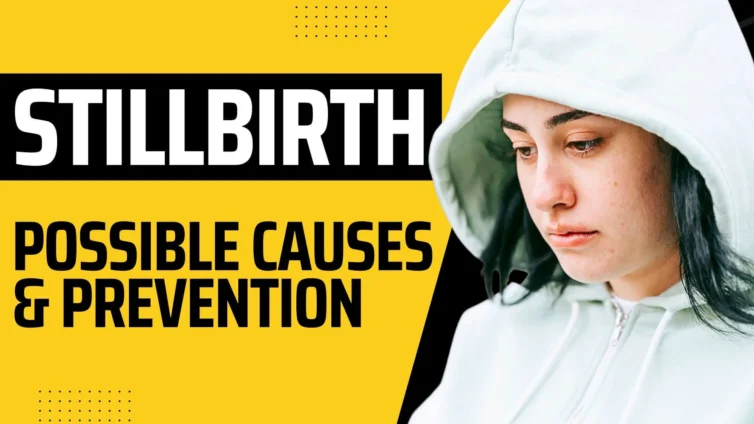
Imagine planning a surprise party, keeping all the arrangements a secret, dreaming about the moment when the confetti bursts out, and then – nothing. The guests don’t show up. The party is abruptly over before it even started. This metaphor may come close to understanding the sense of loss and emptiness couples feel when they face a miscarriage.
Miscarriage, the unintentional loss of a pregnancy before the 20th week, is a silent pain that many couples bear, often in secrecy. It can be a heartbreaking and emotionally exhausting experience, especially when expectations and joy for an upcoming baby are abruptly replaced with grief and sorrow.
Yet, it’s an event that’s more common than most people think. Approximately 26% of all pregnancies are believed to result in miscarriage, with about 10% of these losses occurring in pregnancies that are medically recognized. It’s important to remember that you’re not alone, and understanding more about miscarriage can be the first step towards healing and planning for future pregnancies.
What Does Miscarriage Mean?
Miscarriage, in simplest terms, is the loss of a pregnancy before the 20th week. Often occurring in the first trimester, it is an event that is, unfortunately, more common than we think. As quoted above, Medical experts estimate that about 10% of known pregnancies end in miscarriage, though the number could be even higher considering that many miscarriages occur so early in pregnancy that a woman doesn’t even realize she’s pregnant.
What’s vital to remember here is that a miscarriage is no one’s fault. It’s not caused by stress, exercise, or sex, so it’s crucial not to carry the burden of guilt or self-blame. Most miscarriages are caused by chromosomal abnormalities that prevent the baby from developing. If you’re grappling with the effects of a miscarriage, don’t hesitate to seek professional help to help you through this challenging time.
Types of Miscarriages
Miscarriages can be categorized into different types based on the symptoms and the stage of pregnancy. Understanding these types can help decipher medical terms and make sense of what’s happening.
1. Complete Miscarriage: A complete miscarriage means that all the pregnancy tissue has been expelled from your body. This type usually happens early in the pregnancy.
2. Missed Miscarriage: A missed miscarriage, also known as a silent miscarriage, occurs when the fetus doesn’t develop or dies but is not expelled from the body. Symptoms may not be evident, and it’s often discovered during a routine ultrasound.
3. Incomplete Miscarriage: An incomplete miscarriage happens when only part of the pregnancy tissue is expelled, and some remain inside the body. This may cause prolonged bleeding and cramping.
4. Threatened Miscarriage: In a threatened miscarriage, you might have certain symptoms like abdominal pain and bleeding, but it doesn’t necessarily mean you will lose the pregnancy. The bleeding may stop, and the pregnancy can continue normally.
5. Inevitable Miscarriage: An inevitable miscarriage refers to a situation where symptoms have started (like severe bleeding and cramping), and a miscarriage will unavoidably happen. This usually occurs when the cervix has dilated, and the body is preparing to expel the pregnancy tissue.
6. Recurrent Miscarriage: This refers to three or more consecutive miscarriages. It affects about 1% of couples trying to conceive. Potential causes include genetic factors, hormonal imbalances, or uterine abnormalities.
Each of these types of miscarriage carries its unique characteristics and implications.
Symptoms of Miscarriage

Recognizing the symptoms of a miscarriage can help you seek timely medical assistance. Common symptoms of a miscarriage include:
- Heavy bleeding, often with clots or tissue, is one of the primary signs of a miscarriage.
- Severe abdominal pain or cramping can accompany a miscarriage.
- A sudden decrease in signs of pregnancy, like nausea or breast tenderness, can sometimes signal a miscarriage.
- You may experience dizziness or fainting spells.
If you have any of these symptoms, especially if they are severe or persist, it’s essential to seek medical help immediately. It’s crucial not to self-diagnose as these symptoms can also be signs of other complications like ectopic pregnancy.
What Causes a Miscarriage?
The causes of a miscarriage are diverse and often not specific. Most miscarriages that occur in the first trimester are the result of chromosomal abnormalities in the fetus. These abnormalities could be due to issues in the egg or sperm, or they could occur shortly after conception.
Certain underlying health conditions in the mother, such as diabetes or thyroid disease, can also lead to miscarriage. Additionally, issues with the structure of the uterus or cervix might also cause a miscarriage.
Infections, hormonal imbalances, or problems with the immune system can also increase the risk of miscarriage. Sometimes, the exact cause remains unknown.
Risk Factors for Miscarriage
Certain factors increase the risk of miscarriage:
1. Age: Women over the age of 35 have a higher risk of miscarriage. The risk increases with age.
2. Lifestyle: Habits like smoking, alcohol consumption, or drug use can elevate the risk of miscarriage.
3. Medical History: If you’ve had previous miscarriages, or if you have certain underlying health conditions like diabetes, autoimmune disorders, or hormonal problems, your risk could be higher.
4. Medications: Some medicines can increase the risk of miscarriage. Always consult your doctor before taking any medication during pregnancy.
5. Weight: Being underweight or overweight can increase the risk of miscarriage.
6. Incompetent Cervix: This is a condition where the cervix begins to open (dilate) and thin (efface) prematurely during pregnancy, leading to a risk of premature birth or miscarriage.
Can You Prevent a Miscarriage?

While not all miscarriages can be prevented, some lifestyle changes can lower the risk:
1. Healthy Lifestyle: Maintaining a healthy weight, eating a balanced diet, and staying active can promote a healthy pregnancy.
2. Avoid Harmful Substances: Avoid smoking, drugs, and alcohol during pregnancy as they can increase miscarriage risk.
3. Regular Checkups: Regular prenatal care can help identify and manage any potential issues early.
4. Manage Chronic Conditions: If you have a chronic condition like diabetes or hypertension, ensure it’s well-managed during your pregnancy.
5. Avoid Hazardous Exposures: Exposure to certain environmental toxins and infectious diseases can increase the risk of miscarriage.
Remember, even with these measures, miscarriages can sometimes happen. If you’ve had a miscarriage, it’s not your fault. Help and support are available, whether it’s from your doctor, a pregnancy loss support group, or trusted loved ones.
Coping After a Miscarriage
Coming to terms with a miscarriage is a unique journey for everyone. The grief one feels after such a loss is real and significant, and it’s crucial to acknowledge these feelings rather than push them away. It’s entirely normal to feel sadness, anger, frustration, or even guilt. Each person’s journey through grief is unique, and there’s no set timeline for healing.
One of the keys to coping after a miscarriage is leaning on your support system. This can include your partner, family, friends, or even a dedicated miscarriage or pregnancy loss support group. Sharing your feelings with others who’ve been through similar experiences can be incredibly therapeutic.
Additionally, seeking professional help such as counseling can also be beneficial. A counselor or therapist can provide techniques and tools for managing grief and can provide a safe, confidential space for you to express your feelings. Don’t hesitate to consult your doctor if you’re struggling with your emotional health. They can recommend resources, including mental health professionals who specialize in grief or pregnancy loss.
Trying Again After a Miscarriage
The decision of when to try again after a miscarriage is a deeply personal one, and it should be made in conjunction with your doctor. Generally, it’s medically safe to try again after your regular menstrual cycle has returned, which can take anywhere from four to six weeks. However, some doctors recommend waiting for two or three regular menstrual cycles to allow the body to fully recover.
Before deciding to try again, you should consider your emotional readiness. It’s okay to take the time you need to grieve your loss and come to terms with your feelings. It’s also important to discuss with your doctor any steps you can take to reduce the risk of another miscarriage, based on your specific situation.
When you decide to try again, remember that most women who’ve had a miscarriage go on to have a successful pregnancy. Miscarriage is a common event, and in most cases, it’s a one-time occurrence.
Key Takeaways
A miscarriage, or the loss of a pregnancy before 20 weeks, can happen due to various causes including chromosomal abnormalities, maternal health conditions, lifestyle factors, and others.
There are several types of miscarriages, including complete, missed, incomplete, threatened, and inevitable miscarriages. Each type has distinct characteristics and symptoms.
The most common signs of a miscarriage include heavy bleeding, severe abdominal pain, and the passing of tissue or clot-like material. Medical attention should be sought immediately if these symptoms occur.
While not all miscarriages can be prevented, maintaining a healthy lifestyle, managing pre-existing medical conditions, and regular prenatal care can reduce the risk.
Coping with the loss of a miscarriage can be emotionally challenging, but support from loved ones, support groups, or professional counseling can aid in the healing process.
Final Thoughts
Experiencing a miscarriage can be one of the most emotionally and physically distressing experiences for a woman and her partner. It is crucial to understand that such losses are not a result of something you did or didn’t do. They are often due to factors beyond anyone’s control such as chromosomal abnormalities or other natural causes. The emotional toll of this event can be immense, but remember, it’s okay to grieve and take the necessary time to heal.
Moving forward from a miscarriage doesn’t mean forgetting about the lost pregnancy, but rather understanding and accepting the occurrence as a part of your journey. With the right support and care, recovery is attainable and a successful pregnancy in the future is still very possible. It’s essential to seek guidance and assistance from healthcare professionals throughout this process. Remember, you’re not alone, and help is available every step of the way toward recovery and planning for future pregnancies.
Frequently Asked Questions (FAQs)
What is a miscarriage?
A miscarriage is the loss of a pregnancy before the 20th week of pregnancy.
What causes a miscarriage?
Miscarriage may occur due to various factors such as genetic abnormalities, hormonal imbalances, maternal health issues, infection, or physical trauma.
Are there different types of miscarriage?
Yes, there are different types of miscarriages, including complete, incomplete, missed, and recurrent miscarriages.
How can I prevent a miscarriage?
While it may not always be possible to prevent a miscarriage, maintaining a healthy lifestyle, managing underlying health conditions, avoiding harmful substances, and seeking early medical care can help reduce the risk.
What are the symptoms of a miscarriage?
Symptoms of a miscarriage may include vaginal bleeding, abdominal cramping, back pain, passing of tissue or clots, and a decrease in pregnancy symptoms.
When do most miscarriages happen?
Most miscarriages happen within the first 3 months of pregnancy, also known as the first trimester.
What should I do following a miscarriage?
Following a miscarriage, it is important to take care of your physical and emotional well-being. This may include resting, seeking support from loved ones, and discussing future pregnancy plans with your doctor.





